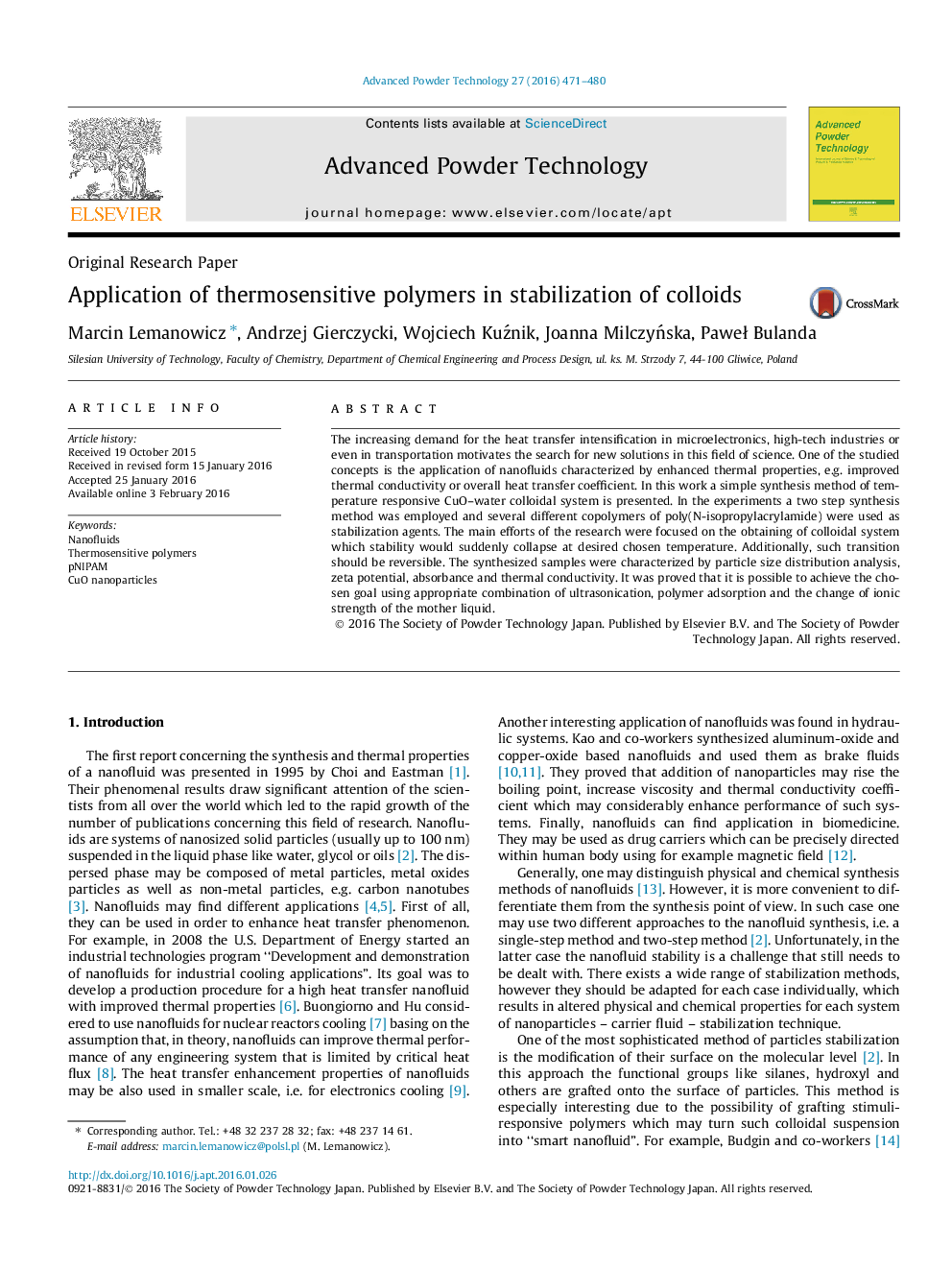| Article ID | Journal | Published Year | Pages | File Type |
|---|---|---|---|---|
| 144120 | Advanced Powder Technology | 2016 | 10 Pages |
•Temperature-responsive colloidal systems were investigated.•A simple synthesis method of thermoresponsive colloid was presented.•The collapse of suspension stability may be reversed by change of temperature.•The samples exhibited enhanced thermal conductivity.
The increasing demand for the heat transfer intensification in microelectronics, high-tech industries or even in transportation motivates the search for new solutions in this field of science. One of the studied concepts is the application of nanofluids characterized by enhanced thermal properties, e.g. improved thermal conductivity or overall heat transfer coefficient. In this work a simple synthesis method of temperature responsive CuO–water colloidal system is presented. In the experiments a two step synthesis method was employed and several different copolymers of poly(N-isopropylacrylamide) were used as stabilization agents. The main efforts of the research were focused on the obtaining of colloidal system which stability would suddenly collapse at desired chosen temperature. Additionally, such transition should be reversible. The synthesized samples were characterized by particle size distribution analysis, zeta potential, absorbance and thermal conductivity. It was proved that it is possible to achieve the chosen goal using appropriate combination of ultrasonication, polymer adsorption and the change of ionic strength of the mother liquid.
Graphical abstractSize of CuO nanoparticles (1 vol%) stabilized with poly(N-isopropylacrylamide-co-methacrylic acid) (Z-ave size (d) vs. polymer concentration; left graph) and thermal conductivity of X3 sample (pure sample and sample containing 0.5 M KCl addition).Figure optionsDownload full-size imageDownload as PowerPoint slide
